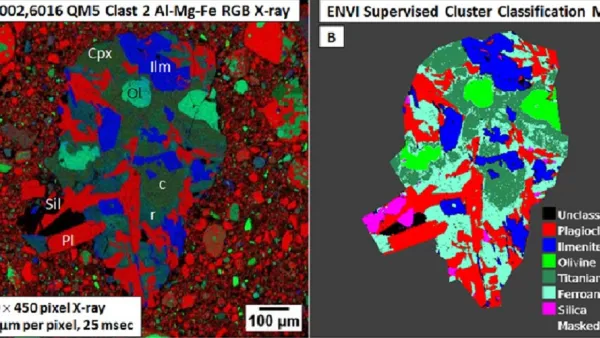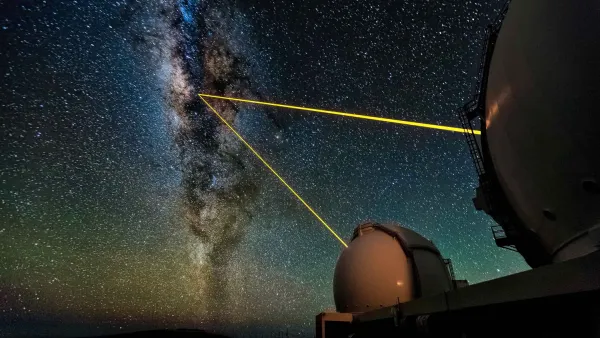The Microanalysis Society has awarded the Macres Award for the Best Instrumentation/Software Paper to the paper Paul Carpenter presented at the Microscopy and Microanalysis 2023 meeting.

The MAS Macres Award honors the authors of a paper that was judged to be the best instrumentation/software paper presented at the Microscopy & Microanalysis meeting. There were over 1000 papers presented at M&M 2023 last August, so this is a very high honor. The award winner is chosen annually by the MAS Awards Committee with input from symposia chairs. The Macres Award is sponsored by MAS Sustaining Member Oxford Instruments. This award will be presented at the upcoming annual meeting, scheduled to take place in Cleveland, Ohio, this summer.
Carpenter's presentation on the QME Tool took place in a session honoring Dr. Klaus Keil. Keil was a central scientific and technological leader in the fields of meteoritics and lunar sample analysis. He co-invented the energy-dispersive spectrometer, and was a founding member and president of the Microbeam Analysis Society (now called the Microanalysis Society). During the same session, Chris Yen also presented on his work on the Apollo 17 continuous core sample and selected lithic clasts.
The Macres Award was established in recognition of Victor Macres, a pioneering researcher in the field of microanalysis. He and his advisor, Bob Ogilvie at MIT, modified an RCA electron microscope and established one of the first modern electron microprobe instrument designs. This design was subsequently built and sold by the Materials Analysis Corporation. This instrument, along with the Cameca and JEOL electron microprobes, were the first to use innovations in design that continue to be fundamental to current microanalytical instruments. Macres also contributed to early developments in X-ray correction algorithms. The Macres award stands as a testament to his significant contributions to the advancement of software and instrumentation in the field of microanalysis.
"To be associated with Klaus Keil and Victor Macres is a real honor," said Carpenter. "I feel that the QME tool represents a fundamental change in how we do microanalysis and view the results using both collaborative and correlative microanalysis methods."




